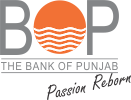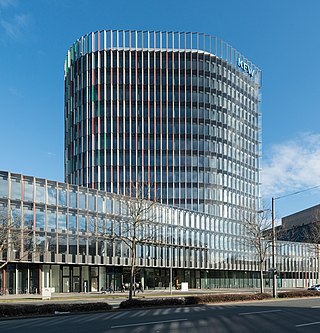Anthroposophy is a spiritual new religious movement which was founded in the early 20th century by the esotericist Rudolf Steiner that postulates the existence of an objective, intellectually comprehensible spiritual world, accessible to human experience. Followers of anthroposophy aim to engage in spiritual discovery through a mode of thought independent of sensory experience. Though proponents claim to present their ideas in a manner that is verifiable by rational discourse and say that they seek precision and clarity comparable to that obtained by scientists investigating the physical world, many of these ideas have been termed pseudoscientific by experts in epistemology and debunkers of pseudoscience.

The economy of the Czech Republic is a developed export-oriented social market economy based in services, manufacturing, and innovation that maintains a high-income welfare state and the European social model. The Czech Republic participates in the European Single Market as a member of the European Union, and is therefore a part of the economy of the European Union. It uses its own currency, the Czech koruna, instead of the euro. It is a member of the Organisation for Economic Co-operation and Development (OECD). The Czech Republic ranks 16th in inequality-adjusted human development and 24th in World Bank Human Capital Index, ahead of countries such as the United States, the United Kingdom or France. It was described by The Guardian as "one of Europe's most flourishing economies".

The Economy of Switzerland is one of the world's most advanced and a highly-developed free market economy. The economy of Switzerland has ranked first in the world since 2015 on the Global Innovation Index and third in the 2020 Global Competitiveness Report. According to United Nations data for 2016, Switzerland is the third richest landlocked country in the world after Liechtenstein and Luxembourg. Together with the latter and Norway, they are the only three countries in the world with a GDP per capita (nominal) above US$90,000 that are neither island nations nor ministates.

The European Investment Bank (EIB) is the European Union's investment bank and is owned by the 27 member states. It is the largest multilateral financial institution in the world. The EIB finances and invests both through equity and debt solutions companies and projects that achieve the policy aims of the European Union through loans, equity and guarantees.

The Co-operative Bank plc is a British retail and commercial bank based in Manchester, England. Established as a bank for co-operators and co-operatives following the principles of the Rochdale Pioneers, the business evolved in the 20th century into a mid-sized British high street bank, operating throughout the UK mainland. Transactions took place at cash desks in co-op stores until the 1960s, when the bank set up a small network of branches that grew from 6 to a high of 160. Branches for residents of the Isle of Man and the Channel Islands were closed in the 2010s during a significant rescaling exercise. As of 2023 it has 50 branches in the UK.
Triodos Bank N.V. is an ethical bank based in the Netherlands with many branches in Belgium, Germany, United Kingdom, and Spain. It was founded in 1980. The bank prioritises investment in environmentally friendly initiatives.

Mittelstand commonly refers to a group of stable business enterprises in Germany, Austria and Switzerland that have proved successful in enduring economic change and turbulence. The term is difficult to translate and may cause confusion for non-Germans. It is usually defined as a statistical category of small and medium-sized enterprises with annual revenues up to 50 million Euro and a maximum of 500 employees.

The Bank of Punjab is a Pakistani government-owned bank which is based in Lahore, Punjab. It is owned by the Government of Punjab, Pakistan.

The economy of Kosovo is a transition economy. Kosovo was the poorest province of the former Yugoslavia with a modern economy established only after a series of federal development subsidies in the 1960s and the 1970s.

The energy policy of the European Union focuses on energy security, sustainability, and integrating the energy markets of member states. An increasingly important part of it is climate policy. A key energy policy adopted in 2009 is the 20/20/20 objectives, binding for all EU Member States. The target involved increasing the share of renewable energy in its final energy use to 20%, reduce greenhouse gases by 20% and increase energy efficiency by 20%. After this target was met, new targets for 2030 were set at a 55% reduction of greenhouse gas emissions by 2030 as part of the European Green Deal. After the Russian invasion of Ukraine, the EU's energy policy turned more towards energy security in their REPowerEU policy package, which boosts both renewable deployment and fossil fuel infrastructure for alternative suppliers.

The economy of Lithuania is the largest economy among the three Baltic states. Lithuania is a member of the European Union and belongs to the group of very high human development countries and is a member of the WTO and OECD.

Weleda is a multinational company that produces both beauty products and naturopathic medicines. Both branches design their products based on anthroposophic principles, an alternative medicine.
The Institute for Development & Research in Banking Technology (IDRBT) is an engineering training institution exclusively focused on banking technology. Established by the Reserve Bank of India (RBI) in 1996, the institution works at the intersection of banking and technology. It is located in Hyderabad, India.
The Bankcard-Servicenetz is a German ATM card interbank network group provided by the Volksbanken und Raiffeisenbanken services group. Technically it is not an interbank network but uses the pre-existing girocard network. Member banks of this cash credit group charge ATM usage fees at a low level and most customers of the co-operative banks enjoy free withdrawal from their accounts. With 19,200 ATMs the Bankcard-Servicenetz group is the second largest ATM group in Germany.

Solar power in Belgium reached an installed capacity of 9.9 GW at the end of 2023, an increase of 1.8 GW from 2022.
Wilhelm Ernst Barkhoff was a German solicitor, founder of anthroposophically oriented alternative banking, the GLS Bank, reformer of the German welfare system and inspirer of the movement for Ethical banking.

Alfred Rexroth was a German engineer, entrepreneur and anthroposophist. He was the director of several business enterprises including the companies Neuguss, Rhinow and his family concern Rexroth, today Alfred Rexroth. Through the donation of his fortune the GLS Bank was able to begin much of its work.

Alternative Bank Switzerland (ABS) is a sustainability-oriented bank based in Olten, Canton of Solothurn, in Switzerland.

AU Small Finance Bank Limited is an Indian scheduled commercial small finance bank and India’s largest tech-led small finance bank, based in Jaipur. It was founded as vehicle finance company and NBFC, AU Financiers (India) Ltd in 1996 and converted into a full-fledged small finance bank on 19 April 2017.

The KfW IPEX-Bank GmbH is a German commercial bank that is the wholly owned subsidiary of German KfW that focuses on development financing. Since 1 January 2008 it has been a legally independent bank governed by the German Banking Act. Its work focuses on international project and export financing. The bank's headquarter is located in Frankfurt, where the KfW IPEX-Bank uses the Westarkade, which was completed in 2011.
















